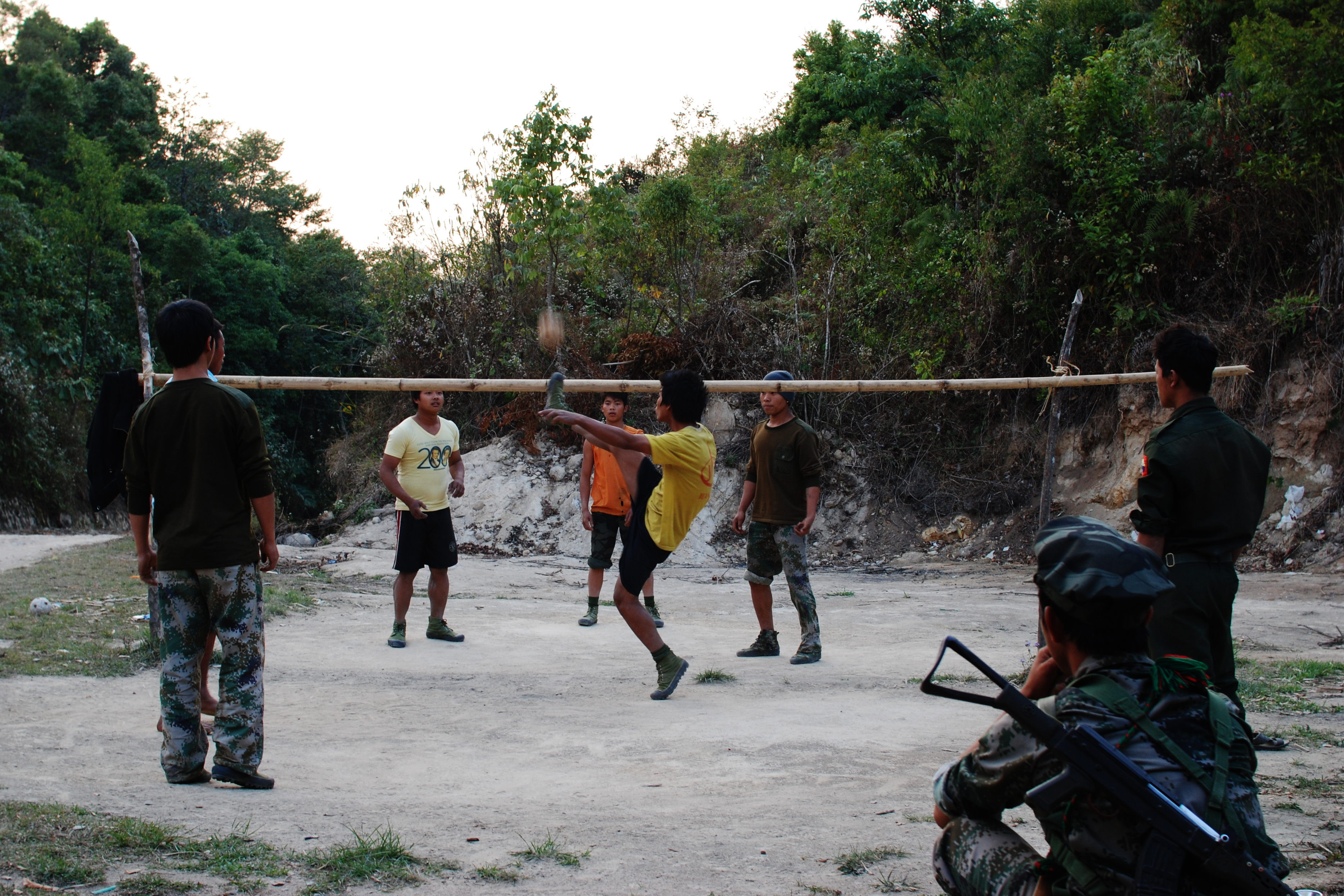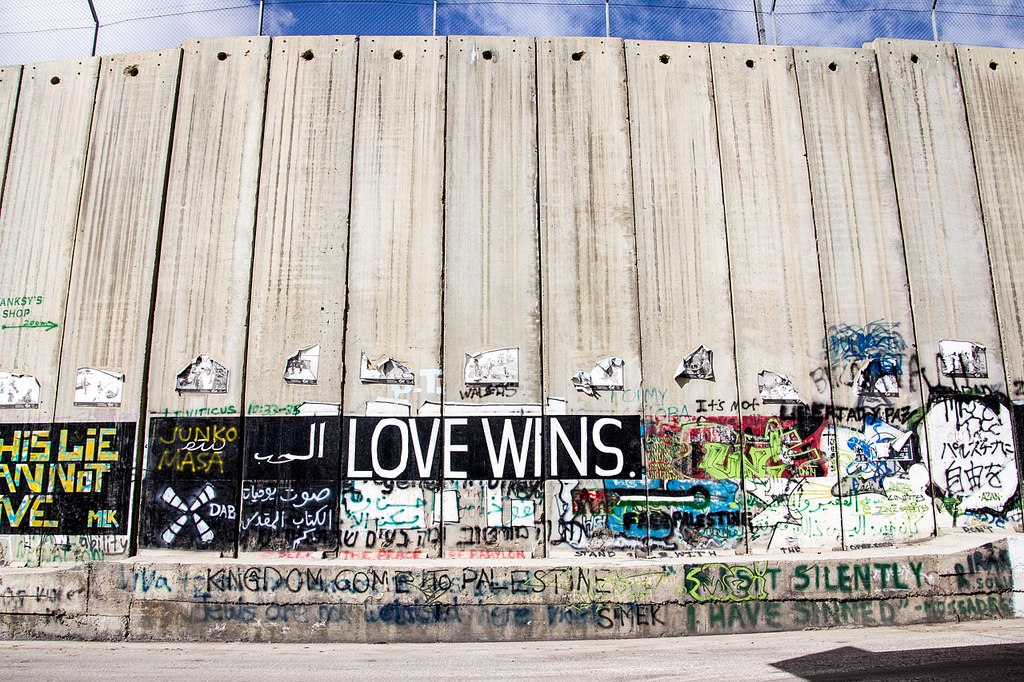Guest post by David Brenner.
Recent scholarship highlights the importance of internal fragmentation for explaining the strategies of non-state armed groups. One important finding is that internal power struggles impact on wider dynamics of conflict, for instance, when driving individual rebel factions to spoil peace negotiations. In analyzing the dynamics of these internal contestations, scholarship has mostly focused on what Paul Staniland described as the ‘horizontal ties’ between rival rebel leaders and their factions. Less attention has been given to the ways in which ‘vertical ties’ between competing rebel leaders and their own rank-and-file drive internal contestation.
Elite-grassroots relations, however, seem particularly important as the gap between popular aspirations amongst a movement’s base and the strategizing calculus amongst its higher echelons often prove tenuous. The fundamental challenge that arises for rebel leaders, then, is how to garner support among the rank-and-file in their struggle against the state as well as in their competition with rival rebel elites. Considering that pure coercion is impotent in creating stable support networks, rebel leaders need to build authority within their movements.
In an article recently published in Contemporary Politics, I draw on insights from ethnographic field work on the Karen and Kachin insurgencies in Myanmar to analyze how rebel leaders capture or lose legitimacy among their grassroots. As I elaborated in previous articles, Karen rebel leaders currently negotiating peace with the government are faced with internal authority problems that threaten the movement’s ceasefire from within. In the case of the Kachin rebellion, similar contestations over authority have contributed to the collapse of their own 17 years-long ceasefire and the re-escalation of conflict in the country’s north.
To understand the internal struggles over legitimacy in both movements, it is important to appreciate that decades-long civil war has embedded political violence within the everyday mesh of many ethnic minority communities in Myanmar’s restive borderlands. Insurgent grassroots in this environment thus not only consist of gun-wielding guerrilla soldiers, but also comprise of student movements, social justice activists, religious authorities, and members of the wider public that support the insurgent cause. In this context, the authority of rebel leaders appears to be less dependent on the distributional outcomes of their insurgent political orders, e.g. the quality and extent of services provided, as sometimes suggested in scholarship on rebel governance.
More important seems to be whether affiliation to rebellion can generate positive self-perceived social identities for grassroots insurgents. Echoing Elisabeth Wood’s findings in El Salvador, my observations in Myanmar suggest that this happens when the insurgent collective is associated with moral principles, as for instance the protection of a particular community and the struggle against unjust state structures. Feeling recognized as a valued member of an insurgent collective can then lead to feelings of pride and self-esteem. This, in turn, generates legitimacy for the insurgent collective and ultimately stable authority for its leaders. If positive social identification with the insurgent collective is threatened, the authority of rebel leaders is undermined and likely to be challenged from below.
In Myanmar, ceasefire politics and peace negotiations have directly ruptured elite-grassroots relations within rebel groups. This is mainly because a business-driven approach to peace-making has hitherto profited elites from all sides but failed to address the grievances of grassroots insurgents. More specifically, the authority of conciliatory Karen and Kachin rebel leaders eroded after extractive and militarized ceasefire economies perpetuated local insecurities and grievances despite an end to fighting. This has not only undermined the standing of both movements among local communities whom they failed to protect, but has also estranged their own soldiers, whose feelings of powerlessness undermined their pride in effectuating political agency against unjust structures. Witnessing the collusion of some of their own leaders over the lucrative spoils of ceasefire industries added to this sense of alienation.
In its current form, Myanmar’s peace process is ill-suited to address the grievances, concerns, and power interests among dissenting parts of rebel groups negotiating with the government. Many grassroots insurgents in both the Karen and the Kachin movements have thus come to support less compromising leaders who mobilize against significant rapprochement with the state. The increasingly contested authority of Karen pro-ceasefire leaders among their own rank-and-file indeed puts their ability to implement a negotiated settlement into question. It has also strengthened less compromising forces in ways that resemble the internal power transitions within the Kachin insurgency before the latter’s ceasefire collapsed. Developing a better understanding of elite-grassroots relations within insurgency movements thus appears to be key for aiding the peaceful settlement of conflict in Myanmar and elsewhere.
*“Authority in Rebel Groups: Identity, Recognition and the Struggle over Legitimacy” will be available for two months free and open access by courtesy of Contemporary Politics and Taylor and Francis.
David Brenner is Lecturer in International Relations at the University of Surrey. He holds a PhD from the London School of Economics (LSE), where he remains affiliated as an Associate Fellow at the Global South Unit. His research interests include the social dynamics of insurgency, ethnonationalism, and (non-)state formation. Based on ethnographic field work, his doctoral thesis traced how contestations over authority within the Karen and Kachin rebellions have impacted wider dynamics of conflict and peace in Myanmar against the background of geopolitical change in the country’s borderlands to China and Thailand.






